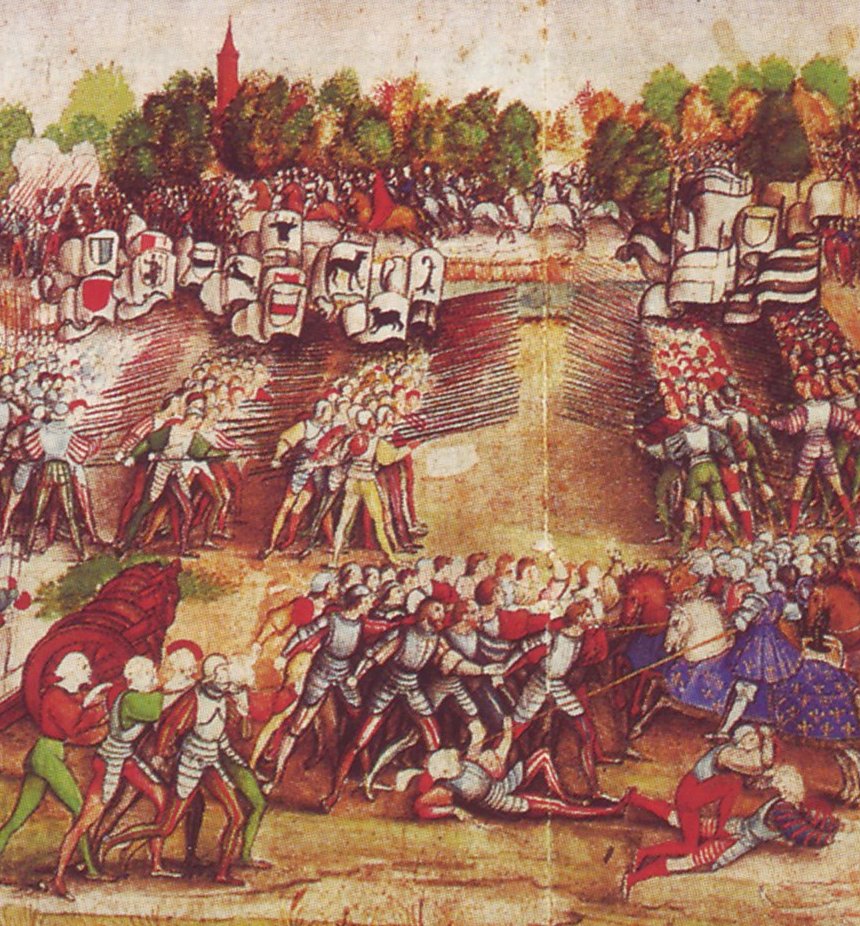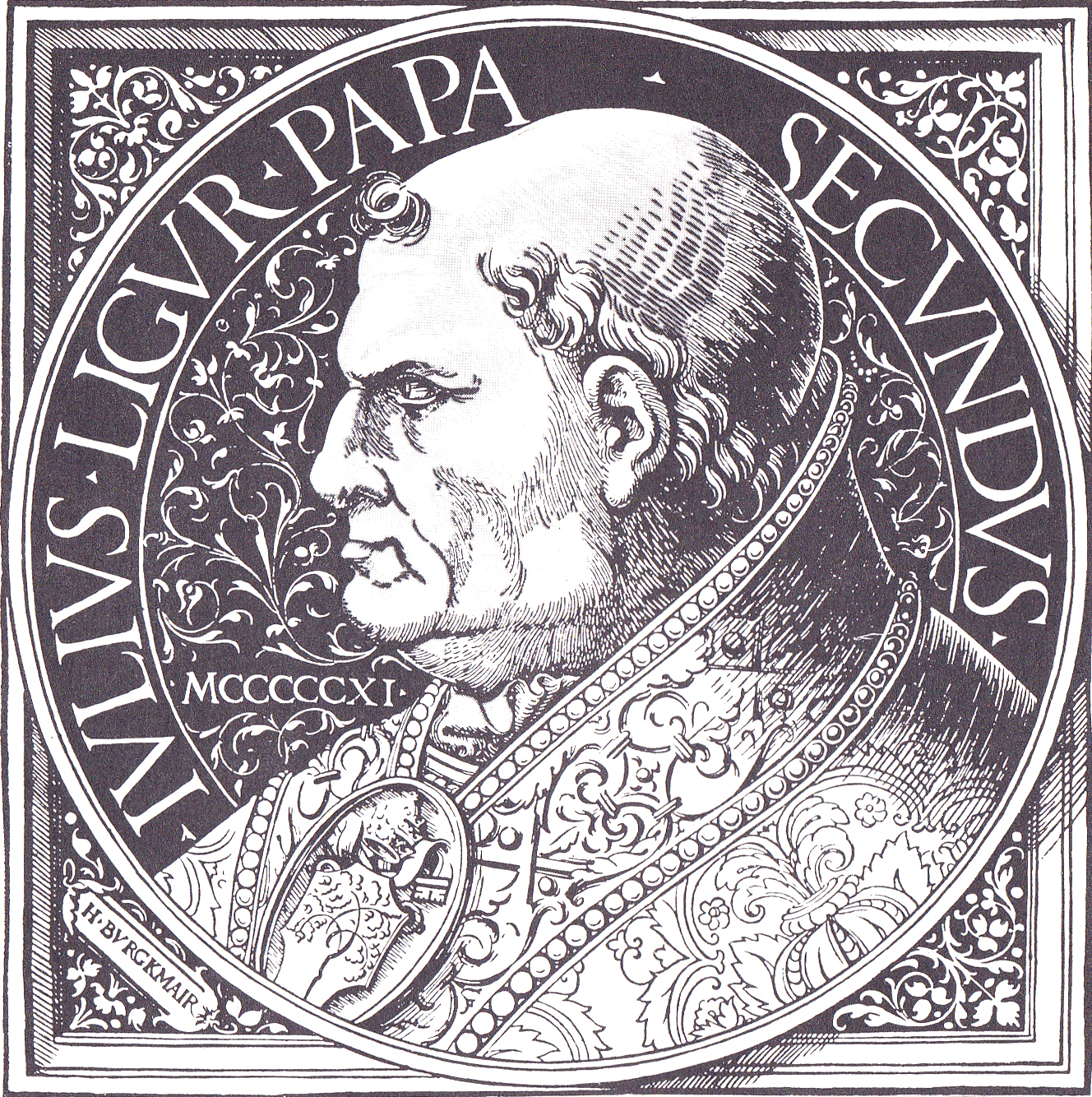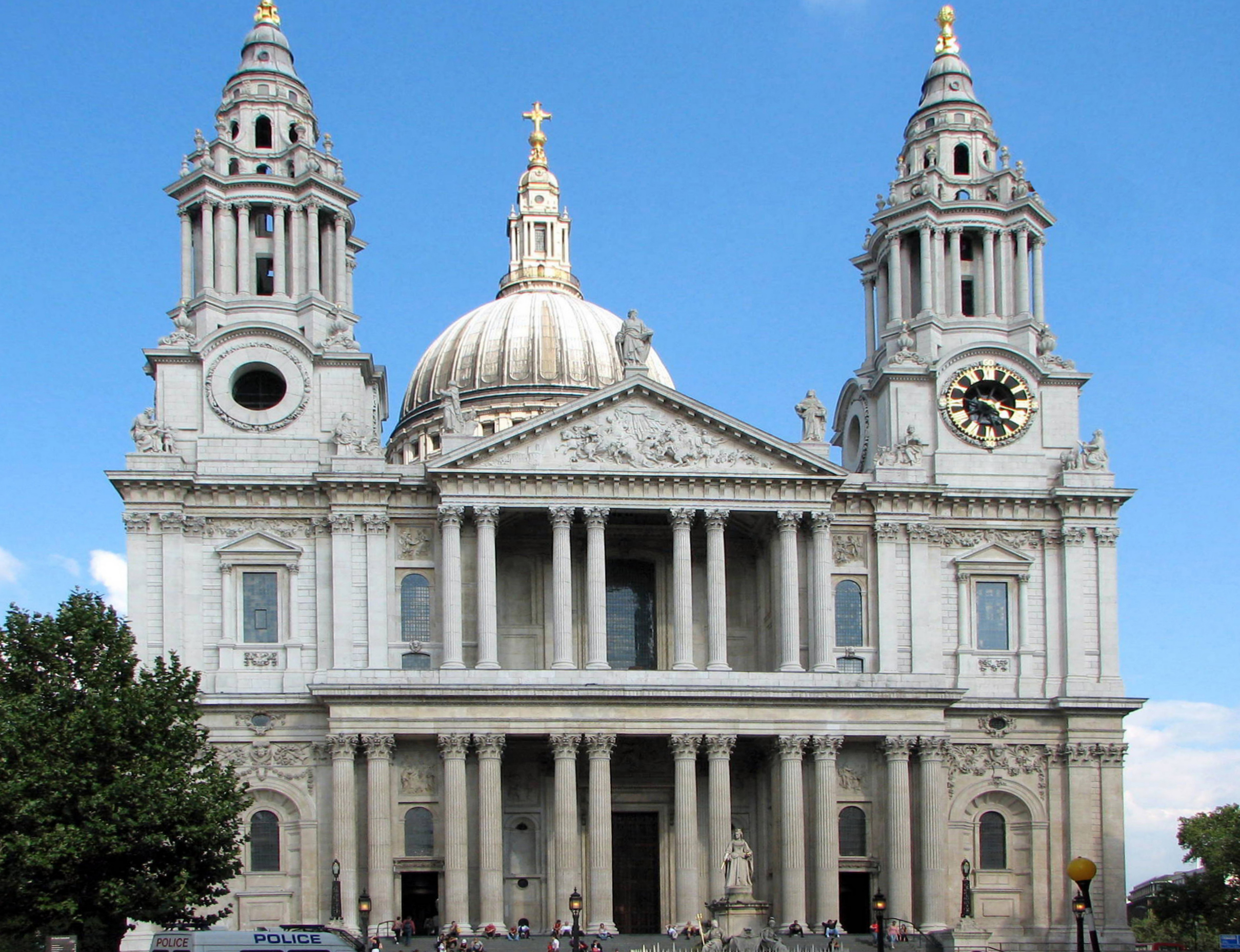|
Richard Pace
Richard Pace (c. 148228 June 1536) was an English clergyman and diplomat of the Tudor period. Life He was born in Hampshire and educated at Winchester College under Thomas Langton. He attended the universities of Padua and Oxford. In 1509, he accompanied Cardinal Christopher Bainbridge, Archbishop of York, to Rome, and he remained in the service of the Archbishop until that man's death by poisoning in 1514; he was instrumental in bringing the murderer to justice. In 1515, upon his return to England, he entered the service of Cardinal Wolsey where he was employed in diplomacy and espionage. In 1515, Pace became Wolsey's secretary and in 1516 a secretary of state, although he continued to engage in lengthy correspondence with the Cardinal on his orders. He was also collated Archdeacon of Dorset in 1514. holding the post until 1523.Chisholm, 1911 In 1515, Wolsey sent Pace to urge the Swiss to attack France. He was engaged in a lengthy negotiation with Emperor Maximill ... [...More Info...] [...Related Items...] OR: [Wikipedia] [Google] [Baidu] |
England
England is a country that is part of the United Kingdom. It shares land borders with Wales to its west and Scotland to its north. The Irish Sea lies northwest and the Celtic Sea to the southwest. It is separated from continental Europe by the North Sea to the east and the English Channel to the south. The country covers five-eighths of the island of Great Britain, which lies in the North Atlantic, and includes over 100 smaller islands, such as the Isles of Scilly and the Isle of Wight. The area now called England was first inhabited by modern humans during the Upper Paleolithic period, but takes its name from the Angles, a Germanic tribe deriving its name from the Anglia peninsula, who settled during the 5th and 6th centuries. England became a unified state in the 10th century and has had a significant cultural and legal impact on the wider world since the Age of Discovery, which began during the 15th century. The English language, the Anglican Church, and Eng ... [...More Info...] [...Related Items...] OR: [Wikipedia] [Google] [Baidu] |
Battle Of Marignano
The Battle of Marignano was the last major engagement of the War of the League of Cambrai and took place on 13–14 September 1515, near the town now called Melegnano, 16 km southeast of Milan. It pitted the French army, composed of the best heavy cavalry and artillery in Europe, led by Francis I, newly crowned King of France, against the Old Swiss Confederacy, whose mercenaries until that point were regarded as the best medieval infantry force in Europe. With the French were German '' landsknechts'', bitter rivals of the Swiss for fame and renown in war, and their late arriving Venetian allies. Background The campaign of Marignano followed years of Swiss successes, during which French fortunes in Northern Italy had suffered greatly. The Swiss had taken control of Milan (for France the gateway to Italy) after their victory at the Battle of Novara (1513), and returned to its ducal throne Massimiliano, son of Ludovico Sforza, to make Milan a protectorate of Switzerland. ... [...More Info...] [...Related Items...] OR: [Wikipedia] [Google] [Baidu] |
Pope Julius II
Pope Julius II ( la, Iulius II; it, Giulio II; born Giuliano della Rovere; 5 December 144321 February 1513) was head of the Catholic Church and ruler of the Papal States from 1503 to his death in February 1513. Nicknamed the Warrior Pope or the Fearsome Pope, he chose his papal name not in honour of Pope Julius I but in emulation of Julius Caesar. One of the most powerful and influential popes, Julius II was a central figure of the High Renaissance and left a significant cultural and political legacy. As a result of his policies during the Italian Wars, the Papal States increased its power and centralization, and the office of the papacy continued to be crucial, diplomatically and politically, during the entirety of the 16th century in Italy and Europe. In 1506, Julius II established the Vatican Museums and initiated the rebuilding of the St. Peter's Basilica. The same year he organized the famous Swiss Guards for his personal protection and commanded a successful campaign in R ... [...More Info...] [...Related Items...] OR: [Wikipedia] [Google] [Baidu] |
Julius Exclusus De Coelis
''Julius Excluded from Heaven'' ( la, Iulius exclusus e coelis (''IE'') is a dialogue that was written in 1514, commonly attributed to the Dutch humanist and theologian Desiderius Erasmus. It involves Pope Julius II, who had recently died, trying to persuade Saint Peter to allow him to enter Heaven by using the same tactics he applied when alive. The dialogue is also supplemented by a "Genius" (his guardian angel) who makes wry comments about the pope and his deeds. Plot The dialogue begins with a drunken Pope Julius II trying to open the gate of heaven with the key to his secret money-chest. He is accompanied by his Genius, his guardian angel. Behind him are the soldiers who died in his military campaigns, whom he promised would go to heaven regardless of their deeds. Peter denies him passage, even when Julius threatens him with his army and papal bulls of excommunication, and questions him about his deeds on Earth. Julius then goes into a lengthy explanation of his deeds and ... [...More Info...] [...Related Items...] OR: [Wikipedia] [Google] [Baidu] |
James Gairdner
James Gairdner (22 March 1828 – 4 November 1912) was a British historian. He specialised in 15th-century and early Tudor history, and among other tasks edited the ''Letters and Papers of the Reign of Henry VIII'' series. Son of John Gairdner, M.D. and brother of Sir William Tennant Gairdner, he was born and educated in Edinburgh. He entered the Public Record Office in London in 1846, remaining at work there until his retirement over fifty years later in 1900. Gairdner's contributions to English history related chiefly to the reigns of Richard III, Henry VII and Henry VIII. For the Rolls Series he edited ''Letters and Papers illustrative of the Reigns of Richard III and Henry VII'' (London, 1861–1863), and ''Memorials of Henry VII'' (London, 1858). In association with J. S. Brewer, Gairdner prepared the first four volumes (in nine parts) of the ''Calendar of Letters and Papers of the Reign of Henry VIII'', and, after Brewer's death in 1879, Gairdner completed the series, ... [...More Info...] [...Related Items...] OR: [Wikipedia] [Google] [Baidu] |
Letters And Papers Of The Reign Of Henry VIII
''Letters and Papers of the Reign of Henry VIII'' (full title: ''Letters and Papers, Foreign and Domestic, of the Reign of Henry VIII: preserved in the Public Record Office, the British Museum, and elsewhere in England''; often abbreviated in citations as ''L&P'') is a multi-volume edition of documents from the reign of Henry VIII of England. The series was edited by J. S. Brewer, James Gairdner and R. H. Brodie, and originally published between 1862 and 1932. It remains a key resource for historians of the period, and is now freely available online as part of British History Online. Surviving documents from the Public Record Office (now The National Archives), the British Museum (now the British Library), other archives, and reliable older publications, are presented in date order. The texts are calendared: that is to say, they are slightly summarised and edited, the language modernised, and some explanatory footnotes added; but all substantive content is retained. Undated docum ... [...More Info...] [...Related Items...] OR: [Wikipedia] [Google] [Baidu] |
Dean Of Salisbury
The Dean of Salisbury is the head of the chapter of Salisbury Cathedral in the Church of England. The Dean assists the archdeacon of Sarum and bishop of Ramsbury in the diocese of Salisbury. List of deans High Medieval * Walter * Osbert *?–1111 Robert *bef. 1115–aft. 1122 Serlo * Roger *–aft. 1145 Azo *1148–1155 Robert of Chichester *1155–1164 Henry de Beaumont *1166–1175 John of OxfordBritish History Online Bishops of Norwich accessed on 14 December 2007 *1176–1193 *1194–1197 Eustace [...More Info...] [...Related Items...] OR: [Wikipedia] [Google] [Baidu] |
Dean Of Exeter
The Dean of Exeter is the head of the Chapter of Cathedral Church of Saint Peter in Exeter, England. The chapter was established by William Briwere, Bishop of Exeter (1224–44) who set up the offices of dean and chancellor of Exeter Cathedral, allowing the chapter to elect those officers. The deanery is at 10 The Close, Exeter. The current dean is Jonathan Greener. List of deans High Medieval *1225–1231 Serlo *1231–1252 Roger de Wynkleigh *1252–1268 William de Stanwey *1268–1274 Roger de Toriz *1274–1280 John Noble *1280–1283 John Pycot *1283–1302 Andrew de Kilkenny Late Medieval *1302–1307 Henry de Somerset *1307–1309 Thomas de Lechlade *1311–1326 Bartholomew de Sancto Laurentio *1328–1335 Richard de Coleton *1335–1353 Richard de Braylegh *1353–1363 Reginald de Bugwell *1363–1378 Robert Sumpter Robert Sumpter was the Dean of Exeter The Dean of Exeter is the head of the Chapter of Cathedral Church of Saint Peter in Exeter, England ... [...More Info...] [...Related Items...] OR: [Wikipedia] [Google] [Baidu] |
Venice
Venice ( ; it, Venezia ; vec, Venesia or ) is a city in northeastern Italy and the capital of the Veneto region. It is built on a group of 118 small islands that are separated by canals and linked by over 400 bridges. The islands are in the shallow Venetian Lagoon, an enclosed bay lying between the mouths of the Po and the Piave rivers (more exactly between the Brenta and the Sile). In 2020, around 258,685 people resided in greater Venice or the ''Comune di Venezia'', of whom around 55,000 live in the historical island city of Venice (''centro storico'') and the rest on the mainland (''terraferma''). Together with the cities of Padua and Treviso, Venice is included in the Padua-Treviso-Venice Metropolitan Area (PATREVE), which is considered a statistical metropolitan area, with a total population of 2.6 million. The name is derived from the ancient Veneti people who inhabited the region by the 10th century BC. The city was historica ... [...More Info...] [...Related Items...] OR: [Wikipedia] [Google] [Baidu] |
Field Of The Cloth Of Gold
The Field of the Cloth of Gold (french: Camp du Drap d'Or, ) was a summit meeting between King Henry VIII of England and King Francis I of France from 7 to 24 June 1520. Held at Balinghem, between Ardres in France and Guînes in the English Pale of Calais, it was a very expensive display of wealth by both kings. The summit was arranged to increase the bond of friendship between the two kings following the Anglo-French treaty of 1514. These two monarchs would meet again in 1532 to arrange Francis's assistance in pressuring Pope Clement VII to pronounce Henry's first marriage as illegitimate. Under the guidance of English Cardinal Thomas Wolsey, the both of these European states sought to outlaw war forever among Christian peoples. Though now in France, Balinghem was at the time regarded as part of the English kingdom. This caused some tensions between the English and French, as the latter preferred a location closer to the border, but topographical considerations proved ... [...More Info...] [...Related Items...] OR: [Wikipedia] [Google] [Baidu] |
Dean Of St Paul's
The dean of St Paul's is a member of, and chair of the Chapter of St Paul's Cathedral in London in the Church of England. The dean of St Paul's is also ''ex officio'' dean of the Order of the British Empire. The current dean is Andrew Tremlett, who was installed on 25 September 2022. List of deans High Medieval *1090–1107 Wulman *1107–1111 Ranulf Flambard ''(disputed)'' *1111–1138 William de Mareni *1138–1157 Ralph de Langford *1158–1180 Hugh de Mareni *1180–1199 Ralph de Diceto *1200–1216 Alard de Burnham *1216–1218 Gervase de Howbridge *1218–1227 Robert de Watford *1228–1231 Martin de Pattishall *1231–1241 Geoffrey de Lucy *1241–1243 William of Sainte-Mère-Eglise *1243–1253 Henry de Cornhill *1253–1257 Walter de Saleron *1257–1260 Robert de Barton *1260–1261 Peter de Newport *January 1262–July 1262 Richard Talbot *July 1262 – 1263 John de Ebulo *1263–1267 Geoffrey de Fering *1268–1273 John Chishull *1273–1276 Hervey ... [...More Info...] [...Related Items...] OR: [Wikipedia] [Google] [Baidu] |
Charles V, Holy Roman Emperor
Charles V, french: Charles Quint, it, Carlo V, nl, Karel V, ca, Carles V, la, Carolus V (24 February 1500 – 21 September 1558) was Holy Roman Emperor and Archduke of Austria from 1519 to 1556, King of Spain ( Castile and Aragon) from 1516 to 1556, and Lord of the Netherlands as titular Duke of Burgundy from 1506 to 1555. He was heir to and then head of the rising House of Habsburg during the first half of the 16th century, his dominions in Europe included the Holy Roman Empire, extending from Germany to northern Italy with direct rule over the Austrian hereditary lands and the Burgundian Low Countries, and Spain with its southern Italian possessions of Naples, Sicily, and Sardinia. He oversaw both the continuation of the long-lasting Spanish colonization of the Americas and the short-lived German colonization of the Americas. The personal union of the European and American territories of Charles V was the first collection of realms labelled " the empire ... [...More Info...] [...Related Items...] OR: [Wikipedia] [Google] [Baidu] |





.jpg)

